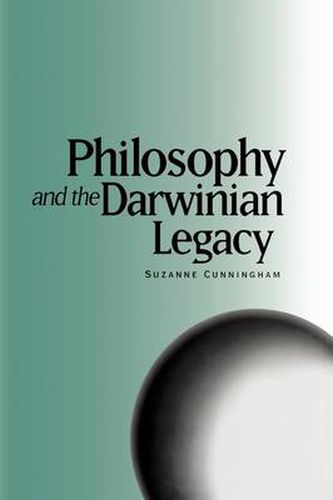Readings Newsletter
Become a Readings Member to make your shopping experience even easier.
Sign in or sign up for free!
You’re not far away from qualifying for FREE standard shipping within Australia
You’ve qualified for FREE standard shipping within Australia
The cart is loading…






Two of the dominant traditions in twentieth-century philosophy, analytic philosophy (founded by G. E. Moore and Bertrand Russell) and phenomenology (founded by Edmund Husserl), explicitly excluded Charles Darwin’s account of evolution, not because they saw it as mistaken, but because they saw it as irrelevant. These two traditions set the stage for a great deal of subsequent philosophy, and Professor Cunningham argues that the non-Darwinian framework they constructed continues to constrain significant portions of the field, in particular theories of perception and mind. In tracing the major reasons for this exclusion of Darwin and evolutionary considerations, and the consequences for philosophy, Professor Cunningham criticises purely cognitivist theories of perception and Machine Functionalist theories of mind, and offers proposals on how these theories should be amended to take account of the adaptive role that perception and mind play on behalf of a living organism’s struggle for survival and well-being. SUZANNE CUNNINGHAMis Associate Professor of Philosophy at Loyola University, Chicago.
$9.00 standard shipping within Australia
FREE standard shipping within Australia for orders over $100.00
Express & International shipping calculated at checkout
Two of the dominant traditions in twentieth-century philosophy, analytic philosophy (founded by G. E. Moore and Bertrand Russell) and phenomenology (founded by Edmund Husserl), explicitly excluded Charles Darwin’s account of evolution, not because they saw it as mistaken, but because they saw it as irrelevant. These two traditions set the stage for a great deal of subsequent philosophy, and Professor Cunningham argues that the non-Darwinian framework they constructed continues to constrain significant portions of the field, in particular theories of perception and mind. In tracing the major reasons for this exclusion of Darwin and evolutionary considerations, and the consequences for philosophy, Professor Cunningham criticises purely cognitivist theories of perception and Machine Functionalist theories of mind, and offers proposals on how these theories should be amended to take account of the adaptive role that perception and mind play on behalf of a living organism’s struggle for survival and well-being. SUZANNE CUNNINGHAMis Associate Professor of Philosophy at Loyola University, Chicago.